The Diane Warren paradox: The perennial Oscar nominee for romantic songs has never fallen in love
She has written legendary modern ballads like ‘I Don’t Wanna Miss a Thing’ and ‘Because You Loved Me.’ This year, she received her 14th Academy Award nomination for best original song
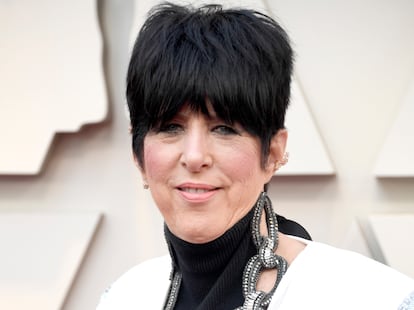
“Mom, I finally found a man!” On November 19, songwriter Diane Warren, 66, stood on the stage of the Fairmont Century Plaza Hotel, looked up at the sky and, clutching the statuette, began her acceptance speech for the honorary Oscar awarded to her by the Academy of Motion Picture Arts and Sciences. “I know you wanted him to be a nice Jewish boy, but it’s really hard to tell,” she joked.
Because she has boasted about it on numerous occasions, it is well known that Warren has never been interested in finding a partner. The composer of some of the greatest love songs of all time has never fallen in love. “I don’t want to stay awake just to hear someone breathe, like in the first line of I Don’t Want to Miss a Thing [Aerosmith, 1998], like get the fuck out of here. I like to listen to my cat purr,” she told journalist Scott Feinberg in an interview on his popular Oscars podcast Awards Chatter in 2019. But she did want an Oscar. She has been nominated for best original song 14 times since 1987. This year she is in the running for the gong thanks to Applause, a song performed by Sofia Carson for the film Tell It Like a Woman. But she has never won the award, making her the fifth most-nominated person to never win. That injustice was remedied when she received the honorary Oscar for her work in November. But even without Academy Awards, Warren has been hugely successful. Let’s start from the beginning.
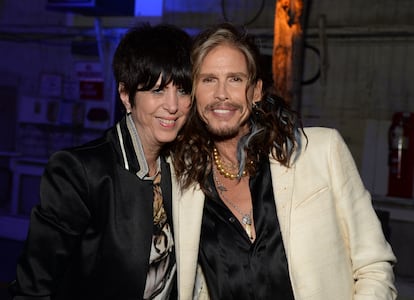
Diane Warren was born to a middle-class family (her father was an insurance salesman; her mother, a homemaker) in Van Nuys, the largest district in Los Angeles’ San Fernando Valley. She’s the youngest of three sisters. Warren discovered her musical vocation at the age of seven, when she learned that songs did not compose themselves. Browsing through her sisters’ records, she learned what the credits of a song were. The first credits she remembers seeing were for the Drifters’ song Up on the Roof, composed by Carole King and Gerry Goffin. As a teenager, she persuaded her father – who was the only one who encouraged her interests – to give her a guitar and sign her up for lessons. She only went to one. After the first lesson, the teacher met with Mr. Warren and told him: “Your daughter has no future in music.”
But young Diane was not dissuaded. She continued to play and taught herself to compose during a rebellious adolescence: she ran away from home and was arrested for smoking marijuana several times; she was 14 years old the first time it happened. Higher education did not deter her, either. While she was not encouraged in her vocation at college, the facilities helped her. At California State University, Northridge, the piano rooms became her home on campus, and she took advantage of the opportunity to play the instrument that would become the tool of her trade.
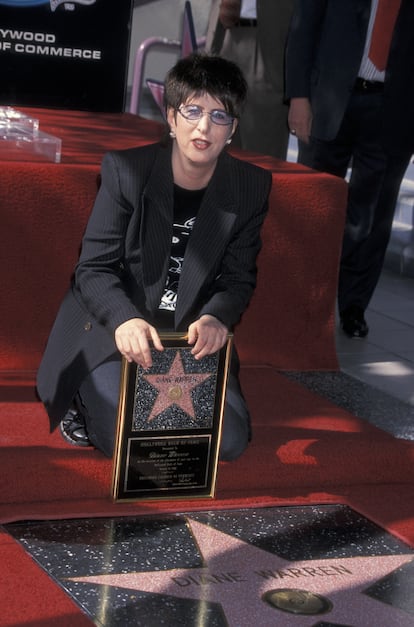
After college, with a handful of songs under her belt, she landed her first job in the industry on a songwriting team for German music producer Jack White. Her first assignment was to write the lyrics for the English version of Solitaire (1983), a French song that became the first single from Laura Branigan’s second album (by then Branigan had already found success with Umberto Tozzi’s Gloria). That solidified Warren’s position on the team until her first big hit, Rhythm of the Night (1985), a song she composed for DeBarge that reached No. 3 on Billboard’s Hot 100 chart.
With the foundations of her career in place, Diane rebelled against the onerous conditions to which White subjected his team. “He paid me the minimum [about $250 a week], he kept my publishing rights, it was a terrible deal, but I had nothing at the time [...] Now we’re friends, I’m grateful to him, but he wasn’t so nice then.” After the success of Rhythm of the Night, she asked him for a percentage of her rights, and he refused. She decided to leave, and he sued her. But the legal strategy did not work out the way White thought it would: “I left the contract, and every big company was offering me amazing amounts of money,” she said. Publishers offered her a 50/50 deal, which is common in the American music industry. The two only went to the trial’s first hearing before they “worked it out.”
Since then, Diane Warren has been self-employed. In 1985, she rented a studio known as The Cave; it’s still her current office, and she works there six or seven days a week for an average of 12 hours a day.
Alone. Although there are other people in her studio, she likes to lock herself in the room with her piano and not be bothered by anyone. “I already bother myself.” When she is told that there are pop songs written by 12 people, she is shocked: “I don’t know, when there’s 12 writers on a song, what exactly they’re doing,” she says. “Are they getting the coffee? Coming up with a hi-hat pattern in the bridge? I don’t need a writing camp. I am a writing camp,” she told The Guardian. She composes an average of one song a week and never takes a vacation for longer than six days.
When she writes music, she usually has a title in mind. And where does she find the inspiration for her songs? Not from her own experiences. “I’m not somebody who sits and writes about my life because how fucking boring would that be? My songs are super open. They could go in a million different directions.” She often draws inspiration from friends’ stories. For example, Warren recalls the day a friend was telling her about her impending divorce and how she couldn’t bring herself to break up with her husband. Her friend burst into tears, and Warren blurted out, “Oh, great!” Her friend reproached her disdainfully: “You really think that’s great?” Well, yes: she had just given Warren the inspiration for Look Away (1988), a song that the band Chicago eventually performed.
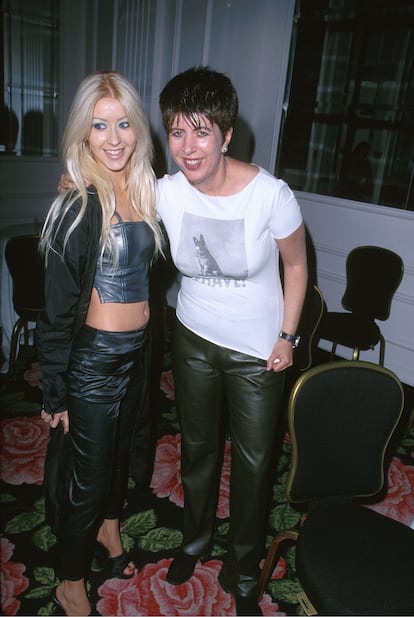
A year earlier, Warren had already achieved her first major cinematic milestone. She received her first Oscar nomination for Nothing’s Gonna Stop Us Now, a song she co-wrote with Albert Hammond for the Mannequin soundtrack. That was also her first loss at the Academy Awards: Dirty Dancing’s (I’ve Had) the Time of My Life won the Oscar. In 1987, nothing and nobody could compete with Patrick Swayze and Jennifer Grey. But Nothing’s Gonna Stop Us Now, performed by Starship, was also Warren’s first number one song. Warren has had nine of them in total, and 32 of her songs have been in the top 10 on the influential Billboard charts. Her achievements also include being the first songwriter to have songs at number one and number two at the same time (When I See You Smile and Blame It on the Rain), as well as the first to have seven bestselling titles, by seven different artists, at the same time.
Her next big hit was thanks to Cher, or more accurately in spite of her. In 1989, Cher was recording a Diane Warren song for her album Heart of Stone when the songwriter asked her to listen to another song she’d written, If I Could Turn Back Time. At first, Cher turned Warren down, but she didn’t count on her songwriter-friend’s stubbornness; Warren even offered to pay Cher to record it. “A song is like a dress,” said Warren, who boasts of her ability to persuade unreceptive artists to record songs. “You don’t know how it fits until you try it on.” The rest is history.
The 1990s were Diane Warren’s best decade. During that period, she became the queen of the power ballad, a musical genre reviled by critics (Carl Wilson’s book about Celine Dion, Let’s Talk About Love: Why Other People Have Such Bad Taste, explained it well) but beloved by the public. She earned her second Oscar nomination for Because You Loved Me (1996), which was on the soundtrack of Up Close and Personal and performed by Celine Dion, who also included it on her album Falling into You. This song is a perfect example of how open to interpretation many of Warren’s songs are. Although it was used in the film as the epitome of romance, the song was inspired by her father’s support for her. But the Oscar that year went to Tim Rice and Andrew Lloyd Weber for Evita’s You Must Love Me instead. That night, “I ate two really big orders of French fries to drown my sorrows,” Warren revealed. Her third nomination came for another hit on the charts, How Do I Live (1997), sung by LeAnn Rimes, on the Con Air soundtrack (Titanic’s My Heart Will Go On won).
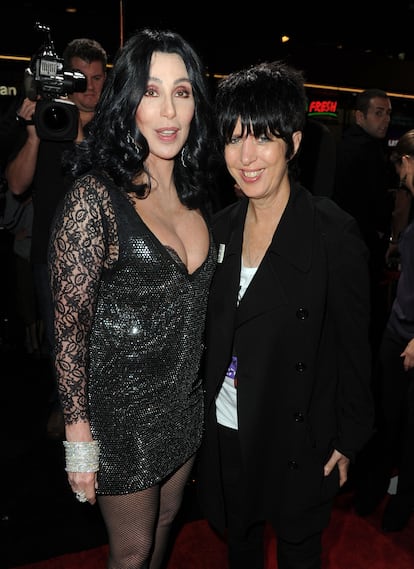
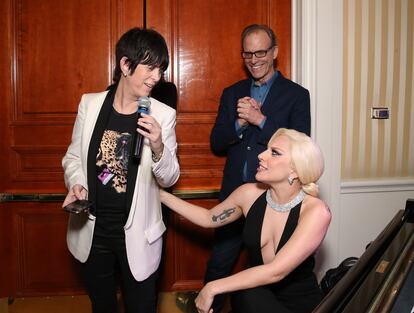
Her fourth nomination came for what is probably her biggest hit, which also happens to have the most unusual history. Like good prurient stars, Barbra Streisand (for whom Warren had co-written We’re Not Making Love Anymore) and James Brolin gave an interview with the late Barbara Walters after their engagement. In the interview, they told her about the beginnings of their relationship and recounted the following scene: One night, as the couple was spooning in bed, Brolin leaned close to her ear and whispered, “I don’t want to fall asleep.” Streisand asked him why. “Because I’ll miss you.” That provided the inspiration for the song I Don’t Wanna Miss a Thing (1998), which Aerosmith performed for the Armageddon soundtrack. But When You Believe, sung by Whitney Houston and Mariah Carey for The Prince of Egypt soundtrack, won the Oscar (in case you’re wondering, yes, Warren has also written songs for Houston and Carey).
Warren was also nominated for Music of My Heart (for Music of the Heart, 1999) and There You’ll Be (for Pearl Harbor, 2001). Then, Warren’s string of nominations ended until 2015, when she received an Oscar nomination for Grateful from Beyond the Lights. Since then, she has been nominated for an Oscar almost every year for songs performed by artists such as Lady Gaga, Common and Laura Pausini. On March 13, Diane Warren will likely go home without an Oscar once again, but it won’t matter too much: her lack of awards does not detract from her prolific and successful career. Besides, she’s not done yet. As Warren recently stated (hopefully or menacingly, depending on one’s perspective): “Some of my best songs haven’t been heard yet.”
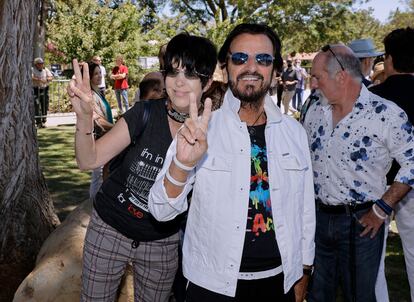
Tu suscripción se está usando en otro dispositivo
¿Quieres añadir otro usuario a tu suscripción?
Si continúas leyendo en este dispositivo, no se podrá leer en el otro.
FlechaTu suscripción se está usando en otro dispositivo y solo puedes acceder a EL PAÍS desde un dispositivo a la vez.
Si quieres compartir tu cuenta, cambia tu suscripción a la modalidad Premium, así podrás añadir otro usuario. Cada uno accederá con su propia cuenta de email, lo que os permitirá personalizar vuestra experiencia en EL PAÍS.
¿Tienes una suscripción de empresa? Accede aquí para contratar más cuentas.
En el caso de no saber quién está usando tu cuenta, te recomendamos cambiar tu contraseña aquí.
Si decides continuar compartiendo tu cuenta, este mensaje se mostrará en tu dispositivo y en el de la otra persona que está usando tu cuenta de forma indefinida, afectando a tu experiencia de lectura. Puedes consultar aquí los términos y condiciones de la suscripción digital.









































